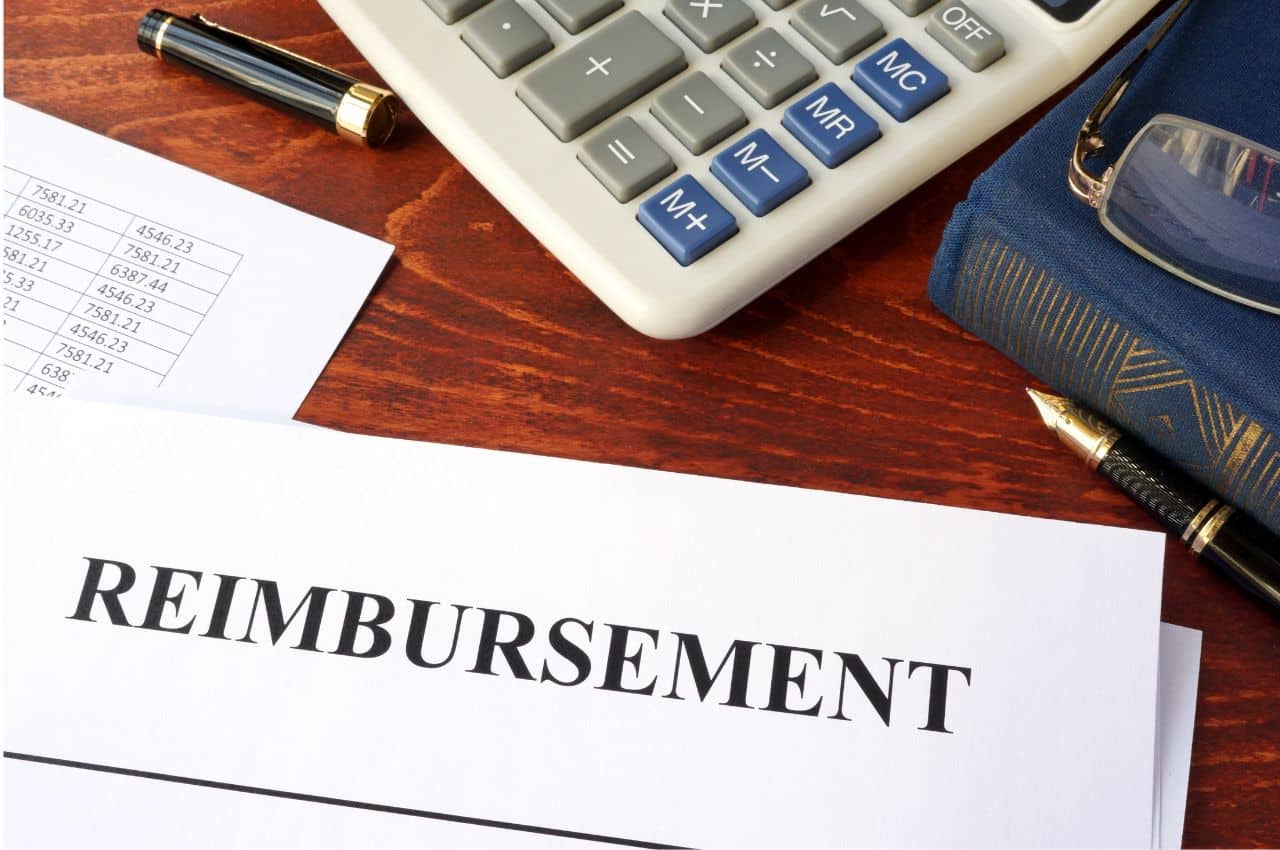Hey everyone! Dealing with pests is no fun, especially when it’s unclear who’s supposed to foot the bill for getting rid of them. Whether it’s ants marching through your kitchen or a mouse popping up in your living room, knowing how pest control costs are handled can save you a lot of stress. Let’s dive into what pest control reimbursement is all about, and figure out if your landlord might be the one who’s supposed to pay for it.
Understanding Pest Control Reimbursement
So, what exactly is pest control reimbursement? It’s basically when you, as a tenant, can get back the money you spent on dealing with pests, from your landlord. This might sound simple, but there’s a bit to understand about when and how this can happen.
Reimbursement usually depends on your lease agreement and local laws. Sometimes, the lease will clearly state that the landlord will handle and pay for pest control. Other times, it might say that it’s up to you unless the problem is major or affects the structure of the building. Local laws can also play a big part. In many places, landlords are required to ensure their properties are livable, which means no infestations.
If you find yourself in a situation where pests are a problem, the first thing to do is check your lease and then maybe talk to someone who knows about tenant rights in your area. This way, you’ll know if you should be paying out of pocket or sending the bill to your landlord.

No More Resident Complaints.
Does My Landlord Have to Pay for Pest Control?
This question pops up a lot: “Does my landlord have to pay for pest control?” Well, the answer isn’t always straightforward and can depend on a few things. First off, what does your lease say? This document should be your go-to guide for most of your rental questions, including this one.
Generally, if pests are a problem because of something beyond your control, like a building-wide issue or due to poor property maintenance, your landlord should probably take care of it. For example, if you move into a place and soon discover there are termites eating through the walls, that’s likely not your fault, and the landlord should step in.
However, if you left food out overnight and woke up to an ant parade, that might be on you. Landlords typically handle structural issues or pre-existing conditions while tenants take care of the problems their actions might cause.
Another thing to consider is the law. In many areas, landlords are legally required to provide a safe and habitable living environment, which includes being free from pest infestations. If your landlord isn’t stepping up, it might be time to remind them of these obligations. Sometimes just mentioning that you know your rights can get things moving in the right direction.
Monthly Pest Control: A Proactive Approach
Having a monthly pest control service is like having a standing appointment with the dentist for a cleaning. It’s proactive and can prevent bigger problems down the line. For landlords, this kind of regular maintenance helps ensure their property stays in good shape and keeps tenants happy. For tenants, it means fewer unexpected creepy-crawler guests.
Regular pest control can also make financial sense. Think about it: paying for a regular service might seem like a lot, but it could end up being cheaper than handling a full-blown infestation that damages the property and requires major treatment. Plus, if pest control is included in your lease, it might not cost you anything extra at all.
Monthly pest control creates a win-win situation. Landlords protect their investment, and tenants enjoy living in a pest-free environment. It’s all about staying ahead of the problem rather than scrambling to fix it once it’s already out of hand.
Pest Control Notice to Tenants

When it comes to pest control, communication is key. That’s where a pest control notice to tenants comes in. This notice is a way for landlords to let tenants know when and how pest control will be handled. It’s important because no one wants to be surprised by a pest control visit, right?
A pest control notice usually includes details like the date and time of pest control, what kind of treatment will be done, and if you need to do anything to prepare, like covering your food or maybe even leaving the apartment for a few hours. These notices are not just common courtesy; in many places, they’re actually required by law. This ensures that everyone is on the same page and that the treatment is as effective as possible without causing too much disruption to your daily life.
For tenants, receiving this notice means you can plan ahead. It gives you time to secure your pets, protect your belongings, or arrange to be out if needed. For landlords, sending out this notice helps maintain transparency and keeps the pest control process smooth, ensuring that tenants are cooperating and that the treatment goes off without a hitch.
Pest Control Before Moving In
Another crucial aspect of managing pest control is handling it before a tenant even moves in. Imagine moving into a new place and finding out it’s infested with pests—definitely not a warm welcome, right? That’s why pest control before moving in is so vital.
Landlords are generally responsible for making sure the rental property is in a good condition and habitable, which means it should be free from pests before you ever step foot in the door. This is part of their duty to provide a safe and clean living environment. Performing pest control before a new tenant moves in is a proactive approach that can prevent a lot of issues and complaints down the line.
For tenants, knowing that your new home has been treated for pests before you move in can give you peace of mind. It’s a good idea to ask about this during the rental process. You might want to inquire if there has been a recent pest inspection and treatment, and if possible, get it in writing. This can save you from unpleasant surprises and make your move smoother and more comfortable.
Negotiating Pest Control Costs with Your Landlord
Now, let’s talk about negotiating pest control costs. Sometimes, the responsibility for pest control is a bit of a grey area, and it might come down to your negotiation skills with your landlord. This is especially true if pest control wasn’t clearly covered in your lease agreement.
When you’re discussing pest control costs with your landlord, it’s important to approach the conversation with a clear understanding of what’s typically expected from both parties. If the infestation is due to structural issues or an ongoing problem with the building, you can reasonably argue that the landlord should cover the costs. However, if the problem arises from your living habits, like not taking out the trash often enough, you might have to shoulder the responsibility yourself.
In your negotiation, be polite but firm. Highlight how maintaining a pest-free environment is beneficial not just for you, but for the property and the landlord’s reputation as well. If you can present a reasonable case and perhaps even propose sharing the costs, you may find your landlord willing to negotiate.
Negotiating isn’t just about saving money—it’s about building a good relationship with your landlord. A cooperative approach can lead to better understanding and management of the rental property, which is beneficial for both parties. Remember, being informed and prepared can make all the difference in these discussions.
Legal Aspects of Pest Control Costs
Navigating the legalities of pest control costs can seem daunting, but it’s pretty straightforward once you know the basics. Legally, landlords must ensure that rental properties are safe and habitable, and this includes being free from pests. If you find yourself in a situation where pest control becomes necessary due to no fault of your own, understanding your rights can really help.
Each state or region might have slightly different laws, but generally, if a pest infestation affects the livability of your rental, the landlord is responsible for addressing it promptly. If they fail to do so, they could be violating the lease agreement as well as local housing codes. As a tenant, this knowledge arms you with the power to demand action, ensuring that your living conditions meet legal standards.
If your landlord is unresponsive or unwilling to fulfil their obligations, you might need to contact local tenant advisory services. They can offer guidance specific to your area and help you understand the next steps, which might include filing a complaint with a housing authority or even taking legal action in more severe cases.
How to Document and Claim Pest Control Reimbursement
If you’re in a situation where you’ve had to pay out-of-pocket for pest control, you might be wondering how to claim reimbursement from your landlord. The key here is documentation. Start by keeping all receipts and records of communication with your landlord about the pest issue. This includes saving receipts from any pest control services and recording details about what the problem was and how it was addressed.
When you approach your landlord for reimbursement, present your documents clearly and calmly explain why you believe reimbursement is warranted. It’s helpful to refer to your lease agreement or local tenant rights to back up your request. If your lease specifies that the landlord covers pest control, or if local laws place the responsibility on them, highlight these points.
A written request is usually the best approach, as it provides a record of your correspondence. Outline the expenses you incurred, attach copies of receipts, and politely request reimbursement by a specific date. If you’ve maintained a good relationship with your landlord, they may be willing to reimburse you without any hassle.
Conclusion
Dealing with pests is never pleasant, but knowing how to handle the costs involved can make the process a lot less stressful. Whether it’s understanding your rights, negotiating with your landlord, or even claiming reimbursement, being informed is your best defence. Remember, communication is key, and keeping good records will support your case in any discussions or disputes.





